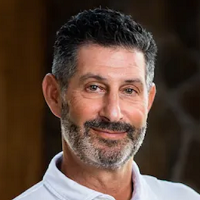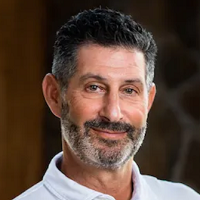How to Help Your Kids Inherit More Than Just Your Money
When you're gone, you want your heirs to be happy and successful and for your life's legacy to live on. Creative estate planning can help with all of that.


Profit and prosper with the best of Kiplinger's advice on investing, taxes, retirement, personal finance and much more. Delivered daily. Enter your email in the box and click Sign Me Up.
You are now subscribed
Your newsletter sign-up was successful
Want to add more newsletters?

Delivered daily
Kiplinger Today
Profit and prosper with the best of Kiplinger's advice on investing, taxes, retirement, personal finance and much more delivered daily. Smart money moves start here.

Sent five days a week
Kiplinger A Step Ahead
Get practical help to make better financial decisions in your everyday life, from spending to savings on top deals.

Delivered daily
Kiplinger Closing Bell
Get today's biggest financial and investing headlines delivered to your inbox every day the U.S. stock market is open.

Sent twice a week
Kiplinger Adviser Intel
Financial pros across the country share best practices and fresh tactics to preserve and grow your wealth.

Delivered weekly
Kiplinger Tax Tips
Trim your federal and state tax bills with practical tax-planning and tax-cutting strategies.

Sent twice a week
Kiplinger Retirement Tips
Your twice-a-week guide to planning and enjoying a financially secure and richly rewarding retirement

Sent bimonthly.
Kiplinger Adviser Angle
Insights for advisers, wealth managers and other financial professionals.

Sent twice a week
Kiplinger Investing Weekly
Your twice-a-week roundup of promising stocks, funds, companies and industries you should consider, ones you should avoid, and why.

Sent weekly for six weeks
Kiplinger Invest for Retirement
Your step-by-step six-part series on how to invest for retirement, from devising a successful strategy to exactly which investments to choose.
The transfer of wealth across generations has long been a complex and emotionally charged topic. Parents often struggle with balancing their desire to provide financial security for their children while ensuring this wealth does not diminish their drive, values or happiness. As an adviser specializing in wealth transfer and focused on the impact of wealth, I have observed the profound effects that money can have on individuals and families. Most parents I know emphasize the importance of passing on not just financial assets but also values, principles and a sense of purpose to ensure the well-being and happiness of future generations.
By now, you’ve probably heard of the Great Wealth Transfer, the estimated $45 trillion to $90 trillion that will change hands from the Baby Boomer generation to their heirs over the next 25 years. However, the term “Great Wealth Transfer” doesn't fully capture what happens when one generation passes the torch to the next. For most people, who you are and what your legacy will be extends far beyond monetary value. We want to ensure that our life's work, core values, family harmony and philanthropic passions continue to make a difference long after we’re gone.
Said simply, we want our children to be happy and healthy and to love one another. Everything beyond that is a bonus. Achieving this requires taking a holistic approach to estate planning. It's time we shift our perspective and recognize the full opportunity before us: Rather than just a wealth transfer, it’s a "Great Legacy Handoff."
From just $107.88 $24.99 for Kiplinger Personal Finance
Become a smarter, better informed investor. Subscribe from just $107.88 $24.99, plus get up to 4 Special Issues

Sign up for Kiplinger’s Free Newsletters
Profit and prosper with the best of expert advice on investing, taxes, retirement, personal finance and more - straight to your e-mail.
Profit and prosper with the best of expert advice - straight to your e-mail.
The psychological impact of sudden wealth
Sudden wealth — whether through inheritance or winning the lottery — can be both a blessing and a curse. Numerous studies and anecdotal evidence highlight that lottery winners often face a host of psychological and financial challenges. For instance, the sudden influx of money can lead to stress, anxiety and strained relationships.
Many find that they quickly become an ATM to family and friends who value their access to newfound capital, questioning their self-worth and relationships and often medicating both with new purchases. Sadly, this leads to unhappiness and often poor financial outcomes. In fact, studies have shown that windfalls like winning the lottery didn't actually stop people from going bankrupt — it just delayed it.
The role of values in wealth transfer
One of the key insights from the field of psychology is that happiness and well-being are not merely tied to financial resources but are deeply connected to a sense of purpose and meaningful relationships. Parents wishing to transfer their wealth successfully should focus on imparting values and principles that have guided their lives. A “letter of wishes,” often used in estate planning, can be an effective tool. This letter, while not legally binding, provides guidance to trustees on how a trustee should consider the grantor’s objectives in establishing the trust and can emphasize the importance of things such as health, education and meaningful achievements.
Years ago, I crafted a letter of wishes that has become a template from which many of our clients craft their wishes for their heirs, inciting the trustee to consider these wishes when fulfilling their fiduciary obligations. My letter is fairly prescriptive: Of primary importance is the health and happiness of my descendants. The letter clarifies that we hope the trust assets will enable our beneficiaries to pursue opportunities that foster self-esteem and personal growth without inhibiting their ambition or achievement. This aligns with the broader psychological understanding that self-worth and life satisfaction stem from personal accomplishments and the pursuit of individual goals.
Charitable goals and philanthropy
For many, another crucial aspect of wealth transfer is instilling a sense of social responsibility and philanthropy in heirs. Encouraging charitable giving can help beneficiaries develop empathy and a sense of community, essential components of a fulfilling life.
One path to consider is to underscore the importance of philanthropy in your letter or trust, suggesting that a portion of trust assets be used to support charitable causes reflecting the settlor’s pattern of giving during their lifetime. This approach benefits society and enriches the beneficiaries' lives by connecting them to causes greater than themselves. And by keeping the pattern of gifts similar to that of the wealth creator, arguments over which charities to support over the long term can be minimized since the family has a mission around which to unify.
Good parenting and setting an example
Ultimately the most effective way to ensure wealth transfer leads to happiness and well-being is through good parenting and leading by example. Parents who model hard work, integrity and compassion provide their children with the tools they need to navigate the challenges that come with wealth. Setting clear expectations and providing guidance on financial management and philanthropy can prepare heirs to handle their inheritance responsibly. In my case, I separated my heirs from the responsibility of managing trust assets and instead require professional advisers with strict rules about conflicts of interest.
Consider the story of Warren Buffett, who, despite his immense wealth, has pledged to give away most of his fortune to charity. He has consistently encouraged his children to find their own paths and contribute to society. His approach demonstrates that instilling strong values and a sense of purpose can be more valuable than any financial inheritance. And while I suspect all of his children will end up just fine as will their children, much is to be learned about Mr. Buffett’s lifestyle and his pursuit of meaning and intellectual curiosity. He has by all accounts spent far less than he can afford.
Embrace legacy-building strategies for enduring impact
Crafting an estate plan involves much more than simply determining how wealth will be transferred. As we have highlighted, the impact of sudden wealth can be mitigated through careful planning and a focus on the broader aspects of well-being, ultimately leading to a more fulfilling and balanced life for future generations. This process is not a one-size-fits-all formula. It requires deeper conversations between financial advisers and their clients — discussions that delve into the heart of what truly matters.
If you wish to implement these principles in your own estate plan, here are some key areas to consider discussing with your adviser:
1. Education
Emphasize to your adviser that funding for education, from primary school through college and potentially graduate studies, should be a top priority in the trust. Discuss the types of educational institutions and expenses you want to support and consider setting expectations around academic performance to maintain funding.
2. Housing
Share your philosophy on providing housing assistance, which could include options like fully funding a home purchase, contributing to a down payment or covering rent for a period of time. Clarify if there are any location constraints or price caps to consider. The trust could include provisions that housing funding is contingent on the beneficiary maintaining full-time employment or enrollment in school.
3. Stipends
If providing a stipend, work with your adviser to determine an appropriate amount and cadence, as well as any conditions under which the stipend should continue or cease. For example, you may only want to provide a stipend while the beneficiary is meeting certain conditions, such as working in a low-paying field, raising young children, providing care to a family member with a chronic illness or disability, or dedicating time to approved volunteer work and hobbies.
Make sure that your adviser captures the spirit and intent behind the plan. Wealth transfer is not just about passing on money; it is about passing on a legacy of values, purpose and responsibility.
We’re standing on the precipice of the largest intergenerational legacy handoff in history. By focusing on the health and happiness of heirs, encouraging philanthropy if you value giving back, and setting a strong personal example, parents can ensure that their wealth enriches their descendants’ lives meaningfully.
Related Content
- Five Strategies to Keep Your Heirs From Blowing Their Inheritance
- How Estate Planning Can Thwart the ‘Third-Generation Curse’
- Remember, You’re Worth More Than Your Money
- Discussing Family Legacy Plans? 5 Tips to Navigate ‘the Talk’
- Six of the Worst Assets to Inherit
Profit and prosper with the best of Kiplinger's advice on investing, taxes, retirement, personal finance and much more. Delivered daily. Enter your email in the box and click Sign Me Up.

Steve Lockshin is an entrepreneur and financial adviser. He is a Principal of AdvicePeriod and a co-founder of estate planning software firm Vanilla. Steve founded Vanilla with the mission of empowering advisors to deliver more impactful, client-centric estate planning advice. By providing intuitive tools to create, manage and visualize estate plans, Vanilla enables advisers to better demonstrate their value and forge deeper relationships with clients.
-
 Seeing Retirement Ahead? Why Your 50s Will Be So Significant
Seeing Retirement Ahead? Why Your 50s Will Be So SignificantThis is the perfect time to assess whether your retirement planning is on track and determine what steps you need to take if it's not.
-
 Your Retirement Isn't Set in Stone, But It Can Be a Work of Art
Your Retirement Isn't Set in Stone, But It Can Be a Work of ArtSetting and forgetting your retirement plan will make it hard to cope with life's challenges. Instead, consider redrawing and refining your plan as you go.
-
 The Bear Market Protocol: 3 Strategies to Consider in a Down Market
The Bear Market Protocol: 3 Strategies to Consider in a Down MarketThe Bear Market Protocol: 3 Strategies for a Down Market From buying the dip to strategic Roth conversions, there are several ways to use a bear market to your advantage — once you get over the fear factor.
-
 In Your 50s and Seeing Retirement in the Distance? What You Do Now Can Make a Significant Impact
In Your 50s and Seeing Retirement in the Distance? What You Do Now Can Make a Significant ImpactThis is the perfect time to assess whether your retirement planning is on track and determine what steps you need to take if it's not.
-
 Your Retirement Isn't Set in Stone, But It Can Be a Work of Art
Your Retirement Isn't Set in Stone, But It Can Be a Work of ArtSetting and forgetting your retirement plan will make it hard to cope with life's challenges. Instead, consider redrawing and refining your plan as you go.
-
 The Bear Market Protocol: 3 Strategies to Consider in a Down Market
The Bear Market Protocol: 3 Strategies to Consider in a Down MarketThe Bear Market Protocol: 3 Strategies for a Down Market From buying the dip to strategic Roth conversions, there are several ways to use a bear market to your advantage — once you get over the fear factor.
-
 For the 2% Club, the Guardrails Approach and the 4% Rule Do Not Work: Here's What Works Instead
For the 2% Club, the Guardrails Approach and the 4% Rule Do Not Work: Here's What Works InsteadFor retirees with a pension, traditional withdrawal rules could be too restrictive. You need a tailored income plan that is much more flexible and realistic.
-
 Retiring Next Year? Now Is the Time to Start Designing What Your Retirement Will Look Like
Retiring Next Year? Now Is the Time to Start Designing What Your Retirement Will Look LikeThis is when you should be shifting your focus from growing your portfolio to designing an income and tax strategy that aligns your resources with your purpose.
-
 I'm a Financial Planner: This Layered Approach for Your Retirement Money Can Help Lower Your Stress
I'm a Financial Planner: This Layered Approach for Your Retirement Money Can Help Lower Your StressTo be confident about retirement, consider building a safety net by dividing assets into distinct layers and establishing a regular review process. Here's how.
-
 The 4 Estate Planning Documents Every High-Net-Worth Family Needs (Not Just a Will)
The 4 Estate Planning Documents Every High-Net-Worth Family Needs (Not Just a Will)The key to successful estate planning for HNW families isn't just drafting these four documents, but ensuring they're current and immediately accessible.
-
 Love and Legacy: What Couples Rarely Talk About (But Should)
Love and Legacy: What Couples Rarely Talk About (But Should)Couples who talk openly about finances, including estate planning, are more likely to head into retirement joyfully. How can you get the conversation going?